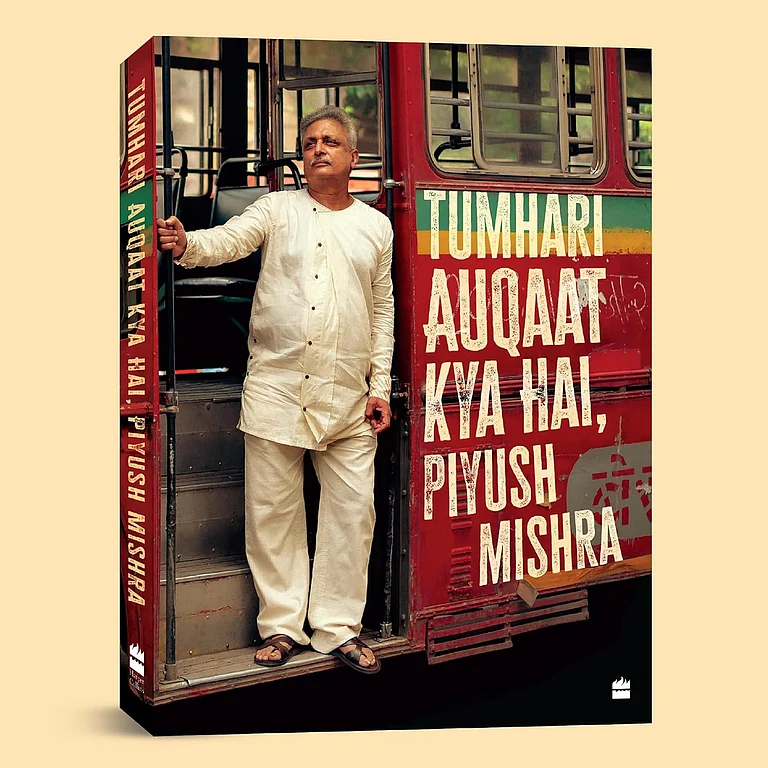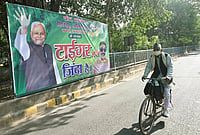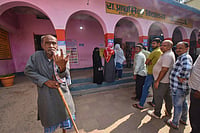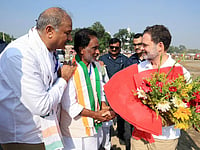Mamta Kalia, born on November 2, 1940, in Vrindavan, Uttar Pradesh, is a distinguished Indian author, teacher, and poet renowned for her contribution to Hindi literature. She earned an MA in English from the University of Delhi and later became a prominent figure in the literary world.
Having taught at institutions like SNDT Women’s University in Mumbai and Mahila Seva Sadan Degree College, in Allahabad, Kalia retired from her teaching career in 2001. Her husband, the major Hindi author Ravindra Kalia, shared her passion for literature.
In 2017, Kalia received the prestigious Vyas Samman, one of India’s most coveted literary awards, for her novel ‘Dukkham Sukkham’ The novel was praised for capturing the essence of Indian culture. Her earlier work, ‘Beghar’, enjoyed high success with multiple editions.
Post-retirement, Kalia took on the role of heading the Bharatiya Bhasha Parishad, a literary organisation based in Kolkata. Apart from her novels, she has authored poetry collections, short stories, and plays that delve into the lived experiences of women, often within middle-class Indian families.
Kalia’s literary journey includes winning several awards and accolades, such as the Yashpal Katha Samman, Sahitya Bhushan Samman, Ram Manohar Lohiya Samman, Mahadevi Varma Samman, Sita Award, KLF Book Award, and Valley of Words Book Award.
Kalia’s recent works include a wonderful literary memoir of the Indian cities ‘Kitne Sharon Mein Kitni Baar’, a biography of her life partner ‘Ravi Katha’, and a literary memoir on Allahabad, ‘Jeete Jee Allahabad’, which are widely read and praised.
In addition to her original works, Kalia adapted and translated Somerset Maugham's ‘Of Human Bondage’ and D.H. Lawrance’s ‘Lady Chatterley’s Lover’ into Hindi, showcasing her versatility as a writer.
Recently, Ashutosh Kumar Thakur spoke to Kalia about the various aspects of her life, works, and creative process:
Can you share some early memories from your childhood in Vrindavan, your family, and how they may have influenced your later literary pursuits?
Hello Ashutosh, it’s a pleasure to talk to you across the table. Oh, I don’t have many Vrindavan memories. You cannot choose your place of birth. My mother was based in Mathura in a joint family. She was frail in health and needed surgery. Vrindavan, a dusty town, had a Canadian missionary hospital where surgical facilities existed. My mother was taken there. We two sisters are both caesarean babies of the ‘40s. In 10 days or so, mother was brought back to Mathura. My father was teaching at a college in Delhi.
Later on, in 1967, I visited Vrindavan and was intrigued by the elaborate prayers and rituals at Banke Bihari Temple. The Pongal served at Rang Ji Ka Mandir was far more democratic.
Yes, Mathura and Vrindavan peep into my writings, at times like a backdrop, more often like an uneasy memory. My parents defied the paternal family business of wholesale grain merchandise and were thrown out by my irate grandfather. The joint family structure received its first jolt thus.
How did your academic background in English literature contribute to your writing, especially in the context of your later works in Hindi?
My father, Vidyabhushan Agrawal, was a student of English literature, and he realised that despite all national fervour, English was the master key for employment. He joined Akashwani on a gazetted post. His brother Bharat Bhushan Agrawal followed him. Papa’s frequent transfers resulted in my continued schooling in English schools.
As language and literature, English threw open magic casements to my fervour for fiction and poetry. As an MA student at Hindu College at Delhi University, I was immensely inspired by my professor and head of the department Prof. B Rajan. He was not only a great scholar but also a creative author. His lectures, the DU library, and the availability of quality books transformed my concept of life and letters. The DU gave me new wings to fly high. Apart from my textbooks, I read and absorbed world literature in translation. I was already writing poetry in Hindi and English. The mid-‘60s were coloured with American decadent influences. I wrote ‘Akavita’ or ‘anti-poetry’. I was later disillusioned with this movement.
Reflecting on your teaching career, what impact did it have on your writing and your understanding of the experiences of women, as portrayed in your works?
I passed out from the DU in 1963 and was selected for a lectureship in the very first interview at Daulat Ram College. I spent 38 years in teaching and administration. Teaching is also a learning process. Every year you come across new batches of students. Each text unfolds new angles of elevation and revelation. The students gave and received new vibrations. No wonder many of my short stories and novels centre around a career woman protagonist who is a teacher. I came across so many single women workers that they emerged as important spokespersons of my concerns. Fact and fiction often blend like coffee and cream. My novels ‘Narak Dar Narak’, ‘Ek Patni Ke Notes’, and ‘Andhere Ka Tala’ are all built around the college milieu.
How did your marriage to renowned Hindi author Ravindra Kalia influence your writing and literary journey? Can you share insights into the collaborative aspects of your literary endeavours?
Unlike other writer couples, Ravi and I never co-authored a book, but we lived together in our newfound love. Our concerns were different. Ravi had a special eye for the have-nots and minorities whereas I was moved by the complexities of a career woman’s life. We never tip-toed into each other’s texts though we were the new-age Laila Majnu at heart.
Receiving the Vyas Samman for ‘Dukkham Sukkham’ was a big deal. Can you tell us what inspired you to write the novel and how you felt when you received such a prestigious award?
‘Dukkham Sukkham’ is almost the personal history of a family member. I wanted to write about my Dadi since even at the raw age of 5, I could see vital changes in her personality under the influence of Mahatma Gandhi's ideology. But I was diffident. Who will read about such an age-old character, I thought. But renowned authors Amarkantji and Ravi urged me to write. You must always write the basics first, all else is glitter, they said. I received Vyas Samman in 2017 when both inspiring stalwarts had passed away. I missed Ravi the most that day. At the same time, I felt creative writing gets vindicated at its own pace. Dr VN Tiwari read out his jury verdict which made me proud and humble at the same time.
Your recent book ‘Ravi Katha’ is a biography of your life partner, Ravindra Kalia. What challenges and joys did you experience while delving into his life and literary contributions?
Ravindra Kalia, my life partner, was a very innovative and dynamic person. In 2011, he was diagnosed with cancer and he passed away in 2016. He faced many challenges but he never lost his lust for life. I often recall Robert Browning’s poem ‘Prospice’ when I remember his grit and guts. A younger author, Akhilesh, who is also editor of the literary quarterly ‘Tadbhav’, asked me to write about Ravi. I began writing ‘Ravi Katha’ in 2016 in a muffled, baffled state of mind. After two chapters, I realised this could not be a sob-story. Ravi had a braveheart. So, I started writing about his wit and wits, his ecstasy, and his eccentricities. People loved the book ‘Ravi Katha’ and it went into its next editions within a month. Kalinga Lit Fest honoured it with the ‘Book of the Year’ award in the year 2021.
Your other significant memoir ‘Jeete Ji Allahabad’ explores the vibrant literary culture of Allahabad, during your stay there. What motivated you to write about this city, and how does it intertwine with your personal experiences?
‘Jeete Ji Allahabad’ is an entirely different genre of writing. Allahabad is unique since it is a town mainly of writers, academicians, lawyers, and doctors. My involvement was more with writers, and I felt their concerns should be penned. Everyone in Allahabad has an intellectual bend of mind. I have lived in so many towns, but Allahabad remains unique. I enjoyed writing this book for ‘Tadbhav’. It has run into several editions and was acclaimed as ‘Book of the Year’ by the prestigious Valley of Words in the year 2022.
Could you also share some details about the different aspects of the city's literary culture that you find most intriguing?
You see it’s not easy to size up Allahabad in a few words. We lived there from 1970 to 2003, a great span. There were so many streams of thought and ideology. Ravi and I were influenced by the progressive stream. Reactionary forces had their champions. In a nutshell, you can say, everyone in Allahabad has an attitude.
Your recent work, ‘Kitne Shahron Mein Kitni Baar’, appears to be a reflective piece about the Indian cities in which you lived. Could you provide some insights into the themes and emotions about the cities explored in this book?
The book ‘Kitne Shahron Men Kitni Bar’ was written when one day I tried to count on my fingers where all I had lived so far. My father’s frequent transfers made me a tutti-fruity traveller. Later Ravi’s love made a gypsy out of me. It also showed the restlessness that was a part of my life. I have recalled in brief my impressions of Mathura, Delhi, Nagpur, Mumbai, Pune, Indore, Allahabad, and Kolkata. I haven’t yet written about the many countries that I visited.
Can you describe your creative process? How do you approach writing and do you have any personal habits that aid your creativity?
You wouldn’t find a more chaotic writer than me. No plan. No notes. No first drafts. I write a single time and my first outburst is my curtain call. Many years ago, I used to chew pan masala while writing. I jerked out of this habit when Ravi once remarked, "How do I kiss you if you are breathing out pan masala?” I felt so embarrassed!
Themes come to me in sparks and flashes. When I wrote my novella ‘Daud’, I was lit up by the hard studies of students preparing for MBA. My son was among them. It puzzled me how brilliant students gave up their taste for literature or science and were immersed in the marketing mania of toothpaste and talcum powders. ‘Daud’ speaks of this new generation that’s headlong into business management. This novella, published by ‘Vani Prakashan’ in the year 2000, is taken as the first novel of the 21st century by critics. It has run into 27 editions and is prescribed on the curriculum of several varsities.
Who are some contemporary Hindi writers you admire, and how do you perceive the present landscape of Hindi literature?
Some contemporaries have passed away, but their impressions are indelible. Namvar Singh, Mannu Bhandari, Ravindra Kalia, and Amarkant Jee are some of those. The present scene is very fluid with so many talents wielding their pen. I feel you cannot be a writer unless you read. In fact, we should read more than we write. I may not admire all that I read but I do appreciate one or the other trait in fellow writers like Mridula Garg, Ashok Vajpeyi, Geetanjali Shree, Alka Saraogi, Madhu Kankaria, Akhilesh, Arun Kamal, Vijay Kumar, Krishna Kalpit, Anirudh Umat, Gitashree, Vandana Rag, Neelesh Raghuvanshi, Shivmurti, Garima Srivastav, and Akanksha Pare Kashiv. I am addicted to reading. I cannot avoid reading Manoj Pande, Kunal Singh, Chandan Pande, Pratyaksha, and Ashutosh Dube. I derive inspiration from the brilliance of Orhan Pamuk and Shashi Tharoor in the same breath. Oh, the list is too long to note. These days I am reading Jerry Pinto.
As someone who has translated Somerset Maugham’s work into Hindi, how do you think such translations contribute to the enrichment of Indian literature and language?
I have often felt that those addicted to Hindi seldom pick up an English text to read. However, they are aware of English classics and unforgettable. Translation and adaptation help such souls. If the translation is good, they get a good idea of the text and relate to them. Similarly, Hindi books translated into English carry our content to other shores. That’s how Geetanjali Shree’s novel ‘Ret Samadhi’, translated skilfully as Tomb of Sand, by Daisy Rockwell won the International Booker Award in 2022.
Looking back on your prolific career, what do you hope your literary legacy will be, and what advice would you give to aspiring writers, especially women, in the field of Hindi literature?
Future readers will find in my books the ups and downs of educated men and women struggling to make their way in troubled times. Life has never been hassle-free for men and women. The younger you are the more you suffer. A woman’s lot is tougher since she has to balance her career and family. I would say half the fun of life is always working, never shirking. Never blow out your lamp. Never say die. You are winning a race every day.
Are there specific inspirations or influences that are guiding your upcoming books?
Yes, as a person squashed between two centuries, I have seen drastic and historic changes. In my next book, I wish to portray the helter-skelter of living in those and these times. In yet another book, I wish to look at the shift in thought in career, lifestyle, marriage, and morals of the new gen.
How do you stay creatively inspired throughout the writing process?
No, Ashutosh. While writing, there is this high tide and low tide. When I go touring, I come back with a clean slate. I lose the heat. It’s best to avoid travelling when I am working on an idea. Thank you!
Thank you for taking the time to share your insights and experiences with our readers!
(Ashutosh Kumar Thakur is a Bengaluru-based management professional, literary critic, and curator. He can be reached at ashutoshbthakur@gmail.com.)


























